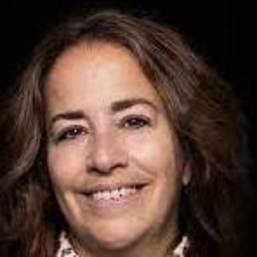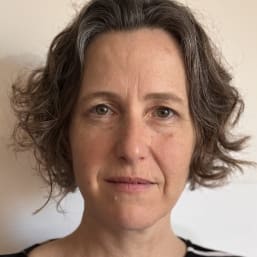.jpg)
Solidarity with Palestinians is not an attack on Jewish students
Last week an article appeared on this site entitled “Jewish students feel unsafe and unwelcome at the UvA.” Erella Grassiani, Hilla Dayan, and Noa Roei think the title of the piece is misleading, as they believe it implies that an entire group of Jewish students within the UvA has been attacked. “The article also obscures an important political issue that we definitely need to talk about as well: namely, the violent Israeli policy and the legitimate opposition to it.”
First of all, we do not wish our students to feel unsafe and unwelcome. But the piece features a Jewish-Israeli student who, along with the author of the article, presents a distorted view, portraying pro-Palestinian activism as violent. However, groups that support Palestinians, even when accompanied by banners and slogans, are not necessarily violent, just as Israelis and/or Jews are not necessarily victims. Moreover, the conflation of Jewish and Israeli as the same identity is also a political statement and highly problematic. Dutch Jews are Dutch and Belgian Jews are Belgian, Israeli Jews are Israeli; the way they are connected to the state of Israel is highly diverse and not something to be assumed automatically. Criticism of the policies of Israel does not equal antisemitism.
“Dirty Zionist”
The policies of a country or government should not be confused with individual (religious or cultural, as well as political) identity. Someone who addresses a fellow student as a “dirty Zionist” just because she wears a Star of David and a teacher who thinks an Israeli student is brainwashed are both making that mistake. But it is equally wrong when the Jewish students who were featured in the article see criticism of Israeli human rights violations as a personal attack or as an attack on their Jewish identity and call it feeling “unsafe.”
The author of the Folia article took these responses at face value, without asking questions or making critical comments. He goes all the way in reproducing a narrative we know from the German context, where a critical word toward Israeli policy and any call to protect the rights of Palestinians is quickly labeled as antisemitism. This problematic narrative is unfair to Palestinians but also erodes the concept of antisemitism. We certainly do not want to see the same repression here as in Germany where the BDS movement (a Palestinian call for Boycott, Divestment, and Sanctions) is banned. We call that anti-Palestinian racism.
Intifada
True anti-Semitism where someone is discriminated against or disadvantaged simply because they are Jewish (or for wearing a skullcap or Star of David, for example) should be strongly disapproved of and opposed. As our Central Diversity Officer pointed out in a response to the piece, this (of course) also goes against the UvA Code of Conduct. However, calling for a “Free Palestine” and using the term Intifada is an entirely different thing. Using “Free Palestine” as a slogan is not an anti-Jewish conspiracy theory, and the term Intifada should be understood in its original Arabic meaning of resistance to oppression.
Such a call is legitimate and deserves a place within the university. That people may be shocked by pro-Palestinian slogans and solidarity actions is no reason to ban them. For critical students, as we try to educate them at the UvA, confrontational or radical expressions should be a moment of self-reflection. It is true that the word “Intifada” is associated in collective Israeli memory with suicide bombings, but you can also expect a student to reflect on what the term means to those who are excluded from this collective memory: the Palestinians.
Surely we should expect PPLE students to be able to think a little more critically about the role of collective memory in the political dimension of just the emotions that were mentioned: a sense of insecurity and fear. The political narratives in which these emotions are placed perpetuate the violent Israeli policies that we have seen in full force again recently in the Palestinian town of Jenin.
Erella Grassiani is a senior lecturer in anthropology, Hilla Dayan is an activist and lecturer in political sociology and Noa Roei is a lecturer in literary studies and cultural analysis. They are affiliated with the UvA/AUC and have Jewish-Israeli backgrounds.



.jpg)
